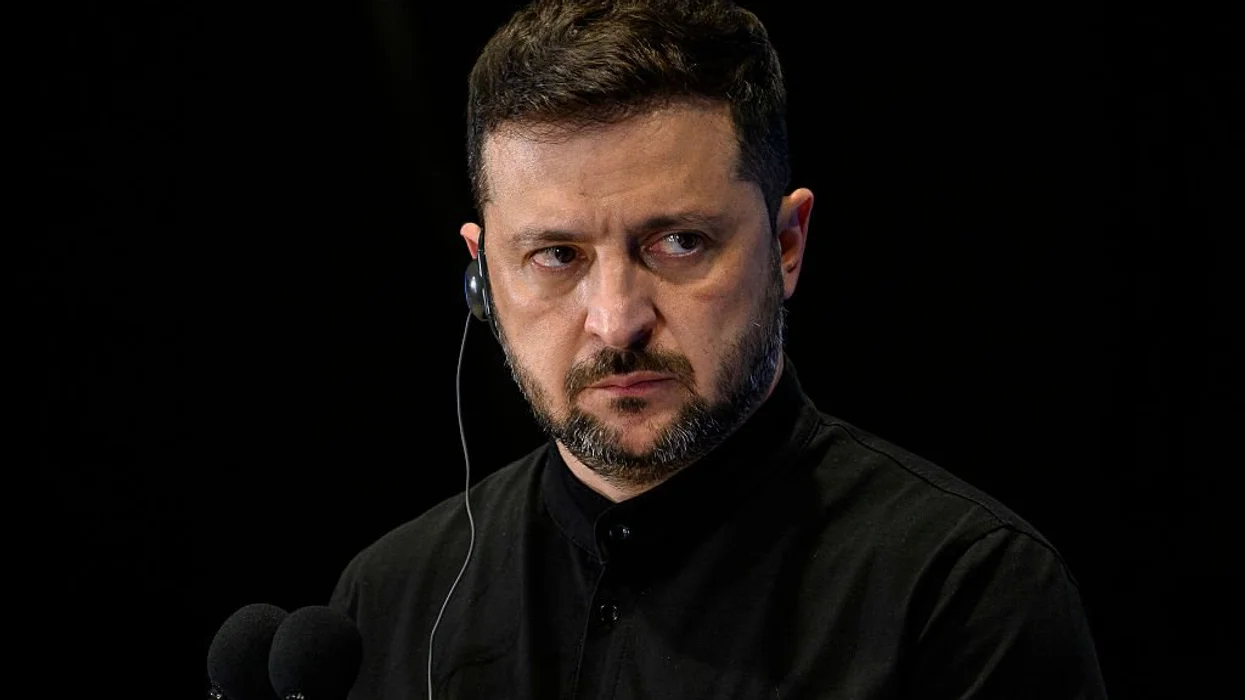 National Intelligence Director James Clapper says PRISM is "entirely legal" thanks to section 702 of the Foreign Intelligence Surveillance Act. (Getty Images)
National Intelligence Director James Clapper says PRISM is "entirely legal" thanks to section 702 of the Foreign Intelligence Surveillance Act. (Getty Images)
The Director of National Intelligence James R. Clapper told employees Friday his agency will "embrace" the surveillance reforms announced by President Barrack Obama and will work with the review committees to implement privacy changes in the upcoming weeks.
Don't expect too much because technological advances have permanently changed the definition of privacy throughout the world , intelligence officials and defense experts told TheBlaze.
The Review Group on Intelligence and Communications Technologies, the Privacy and Civil Liberties Oversight Board worked in close consultation with Congress and intelligence community leaders to draft the new changes that the NSA will implement, Clapper said Friday in a agency wide email, obtained by TheBlaze.
"I'll work with our oversight committees to implement the President’s reforms while we continue to focus on the intelligence challenges facing the United States and our allies," he said. "As intelligence professionals, we have historically preferred to avoid the spotlight, but we know that for the foreseeable future, the public will remain focused on what we do and how we do it. To build on and maintain the trust of the American people and our international partners, we must embrace the President’s call for transparency."
Technological advances have permanently changed the way society deals with individual privacy issues because people regularly give up "enormous amounts" of personal information on themselves through social networking sites, private companies and search engines with the help of cookies that track Internet surfing, said Ron Marks, a former senior CIA Official and published author on Cyber security issues and Homeland Security intelligence.
"The problem is the ability to push information through a multiplicity of sources - protecting a person's privacy when so much of their life is available online and I don't think anybody could of called or really understood what twitter, Facebook and other public sites where information is readily available would do to change and evolve our society, " Marks told TheBlaze.
Marks said " (Edward) Snowden triggered a very necessary debate but what we had as privacy no longer exists. It's a surveillance society. The thing that we haven't thought about is that it's Amazon, Google, LL Bean, not just NSA that's collecting data."
James Carafano, senior defense analyst with The Heritage Foundation, said that there should be no short-cuts when it comes to the constitution and said it will be up to the people to ensure that the government doesn't cross the line.
"Adequate and appropriate Intelligence programs can and must be done in manner consistent with the Constitution," Carafano said. "That is non-negotiable."
He noted that Congress, courts, and the administration "have a responsibility to provide the right oversight and management to get these programs right. Just because the technology keeps evolving that’s a reality not an excuse. Good governance has to figure out how to keep up and keep us safe and free."
Obama defended his administration's surveillance program during Friday's speech at the Justice Department, noting the government's need to gather intelligence to avert potential national security threats at home and abroad.
Over the past year, the White House has faced intense criticism over information released by NSA contractor Edward Snowden that his agency was collecting phone data from citizens throughout the world and spying on world leaders. Snowden, who is wanted by U.S. federal law enforcement agencies, took tens of thousands of classified documents that outlined the NSA's programs. He is now residing in Russia.
But stopping the government or criminals from data collection, whether its a U.S. spy agency or a foreign adversary, is becoming increasingly difficult in a world where information is readily available and many times accessible from a laptop.
Obama told reporters Friday, that it will take time to implement some of the changes in the NSA's collection of phone records and other information. He, noted however, that the core of the agencies programs will remain intact without change.
Clapper told employees that the foreign intelligence surveillance reforms "are focused on striking the right balance between making sure we have the tools necessary to conduct intelligence, and ensuring that we are being as transparent as possible and abiding by protocols that protect the civil liberties and privacy of all Americans."
Technological advances will force the spy agency to continue to balance the changes with civil liberties "and evolving threats to our national security and must adjust our policies and practices to ensure that our intelligence activities are both necessary and appropriate," he said.
"Success is rarely celebrated but is vital to our national security. We conduct the lawful foreign intelligence activities that have been instrumental in preventing a multitude of attacks and saved scores of innocent lives – not just here in the United States, but around the globe," Clapper said in the letter.
But Marks warned that "we're are on a roller coaster right now and we're going to have a big debate and then in the end we're going to land right were we started."
"When it's all said and done what else can you do because year's from now it will become the new normal," he added. "This society will go on, people will learn to be more cautious by what they put on the net. There will be more of an awareness of it. People will accept it, just as they accepted the telegrams in the old days but we're going to have to react more quickly, be more skeptical to information and learn how to protect our own information before giving it away so freely."
--
Follow Sara Carter on Twitter @SaraCarterDC

 National Intelligence Director James Clapper says PRISM is "entirely legal" thanks to section 702 of the Foreign Intelligence Surveillance Act. (Getty Images)
National Intelligence Director James Clapper says PRISM is "entirely legal" thanks to section 702 of the Foreign Intelligence Surveillance Act. (Getty Images)





